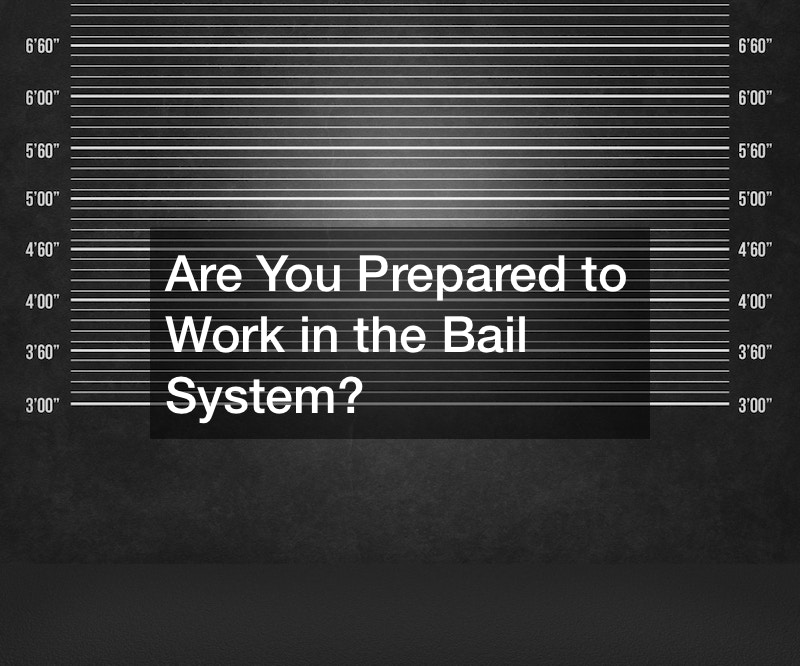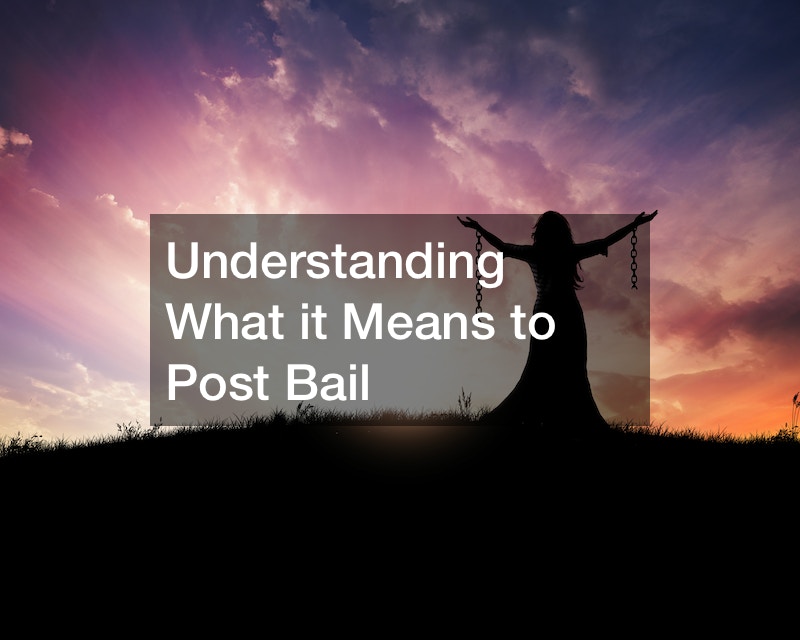Disclaimer: This website shares legal information for educational purposes only and does not constitute legal advice. Please consult a licensed attorney for advice specific to your situation.
According to the United States Court, the Federal Judicial Caseload Statistics of 2022, the criminal defendant filings, including transfers, increased by 9% to 71,111 in the US District Courts. Although civil case filings dropped by 33% to 331,550, the statistics indicate many people go through the court system. In many cases, the court allows the accused to pay bail and attend court sessions when required. However, in some cases, the defendants lack the partial or full amount required for bail. This is where the bail bondsman comes in handy.
A bondsman helps a defendant raise a bail bond. According to the CAP, there are about 15,000 bondsmen in the US, with about $15 billion in annual bond turnover. It’s a massive field with promising careers and massive earnings. If you’re unsure whether to pursue a career in the bail system, don’t worry. This article will exhaust everything you need to know about the bondsman’s career. Let’s dive right in.
A Bail Bondsman Career
Although the salary of a bondsman varies depending on the firm, a bail bond agent earns about $54,804 annually in the US, per Glassdoor. Most bail bond agents aren’t salaried and get commissions for organizing bail for the accused. Typically, the bail arrangement involves the accused person pledging assets or cash or acting as surety. The stipend is usually about 10% of the bond in many states. For example, in a case where the bond is $1000, the agent charges $100.
Usually, a bail bondsman enters into a security arrangement with the relevant court officials. This agreement allows an irrevocable blanket bond to the court if the client fails to make a court appearance. As a result, the bondsman places a bounty on the accused. Bounty hunting is almost exclusive in the US, as most countries consider the profession illegal.
There are majorly two kinds of bail agents – those working for surety companies and others for bail bond companies. A professional bail bond agent will usually require a county license to operate. Are you planning to be a bail bond agent? Let’s take a look at the career’s requirements.

Training and Education Requirement to Work in the Bail System
If you want to take up bail bondsman as a career, the first step is contacting the State Department of Insurance to get a list of the institutions offering the course. Doing so will save you a lot of time trying to find the best school.
Also, you need to get a licensing certificate from the area you intend to practice as a bail bondsman. One of the qualifications for getting the certificate is that you must be at least 18 years old. In addition, you must have the necessary academic qualifications and provide personal identity, fingerprint filing, property details, and proof of residency. Some states require applicants to pass a written examination before getting the license. You’ll have to prove that you know specific statutes and legal technicalities. Also, an in-depth understanding of the rules and legal terms is essential to work in a bail bonding company.
Once a licensed bail bondsman, you can commence posting bonds and work in the bail system. However, you’ll need to understand that surety licenses have a limit. For this reason, ensure you’re within range before making bonds for the criminal defendants. It’s also important to note that some states, such as California, need you to renew your practicing license annually. Doing so will require you to attend at least six hours of continuing education program classes.
Getting the Job
After getting your operating license, you can apply for an agent position at an insurance company. Also, the bail bond agent’s job can get risky, including the client fleeing or failing to honor the agreement. Therefore, it’s imperative that you take up insurance that protects you from such perils. The build-up fund goes into a safe FDIC account. The insurance company also uses the fund to ensure you don’t commit foul play. In case of exemplary work performance, the fund will provide for your retirement benefits. Getting an attorney to walk with you is also wise.
Mostly, the federal government requires bail bond agents to sign a professional bail bonds (professional surety bonds) agreement to receive practicing licenses. Most employment opportunities are advertised on online job portals and newspapers. Also, getting in touch with professional associations that usually look upon the interests of professionals who work in the bail system also helps.

Bondsman Employment Outlook and Potential
Typically, most professionals who work in the bail system start as general agents for insurance companies. Such positions help garner the necessary experience to secure employment with a reputable bail bond agency. You can also start your agency after gaining the required experience in the field. However, it helps to have a network of attorneys, criminal defense judges, and other bail bond agents to succeed as a bondman.
There are myriad criminal cases reported daily. According to the United States Department of Justice, in 2021 alone, about 8,673 hate crime cases were reported. In many cases, the defendants might need help posting assault bail bonds to avoid spending time in jail. Such statistics show that a bail bonding career is a viable choice for anyone with the necessary experience or desire to pursue the career.
Essentially, there’s no shortage of defendants who need services from professionals who work in the bail system. For this reason, the employment outlook for anyone desiring to become a bail bond agent looks promising in the coming years.
Working Conditions
If you intend to work in the bail system, it’s essential to be aware that working as a bail bond agent is risky, especially if you don’t do proper timely verification. Although everyone is innocent until proven guilty, your job will be to work closely with criminal suspects. For this reason, it’s essential to do thorough background checks before posting bail for a defendant.
As a bail bondsman, you’ll need to stick to the stipulated regulations and complete paperwork regarding your client’s criminal records and personal property. The information needs to be accurate before submission to the courts. Mostly, you’ll need to work very fast, especially for emergency bail bonds. In this case, you’ll work against time to get your client out of jail as quickly as possible. For this reason, it isn’t unusual to find a typical bail bondsman working overnight. Therefore, you need to be ready to provide 24 hour bail bonds by working round the clock because some arrests happen overnight.
Working in the bail system can be risky, but the role is essential in criminal justice. Also, some benefits of pursuing this profession are lucrative earnings options and flexible working hours.
The Roles Of a Bail Bondsman
A bail bond agent helps defendants avoid spending time in jail after a criminal arrest. However simple it sounds, a lot of work goes into the process. If you’re planning to work in the bail system, it’s essential to prepare yourself mentally by familiarizing yourself with the role of a bail bondsman. Let’s dig into it.

1. Assessing the Defendant’s Qualifications
A bail bondsman or a bail bonding company receives applications from numerous clients who want to secure freedom temporarily. The first step is to assess the clients or the representative qualifications. During this stage, as an agent, you’ll need to check whether the applicant is a flight risk or if they’re likely to honor court appearances.
Checking the credit score of a defendant is essential as it reflects their creditworthiness. Most creditors, such as banks, credit card companies, landlords, and mortgage companies, will typically report the defendant’s credit limit, credit used, payment history, and income. Also, negative information such as bankruptcy, charge-offs, late payments, and collections are in the report. Such information is essential to determine whether a defendant is worthy of bail.
During the assessment process, you’ll also have to investigate whether the defendant has any record of missing to appear in court after a temporary release. Supposing the client has failed to appear in court before, after the bail, they may still fail to honor the judge’s appearance orders. In that case, the defendant doesn’t qualify for bail.
The assessment stage is usually critical, and the end goal is to ensure the defendant has the means to pay for bail. Also, they’re responsible enough to appear in court.
2. Processing Paperwork
After the bail bond agency accepts the defendant’s appeal for bond application, the bail bondsman pays the full amount of the set bail. On the other hand, the defendant pays 10% of the total bail amount. Also, you’ll be responsible for completing all the legal paperwork and the bail bond legalities for the client.
At this stage, you’ll have to ensure that the defendant signs all the relevant documents to secure the services, which may include signing off on the agreed collateral for the bond. After completing all the necessary paperwork, the court will assume the bail bond agency as the defendant’s representative for bail. The approval of bail ensures the defendant’s temporary release from jail. Additionally, it’s the bondsman’s responsibility to ensure that the defendant attends court hearings.

3. Acting as a Middleman Between the Agency, the Defendant, and the Court
Typically, when you work in the bail system as an agent, you’ll act as the middleman between the defendant and the agency. For this reason, you’ll have to ensure you’re in constant contact with the company.
Although you’ll spend most of your time expediting bail bonds, talking with clients, and prospecting for potential clients, it’s essential to give regular feedback to the agency on the client’s status and prospects. Remember, defendants need quick approval of their bail application. Additionally, you’ll have to submit necessary documents, such as sales receipts, and submit reports to the offices within 24 hours. Doing so will help you get timely commissions and retain your employment contract. For this reason, time management is essential in a bondsman’s work, and timely correspondence with the agency tends to speed up the process.
4. Putting Felons Under Legal Arrest Under Allowable Conditions
If you intend to work in the bail system as a bondsman, you’ll be responsible for communicating with the courts if a defendant flees and doesn’t appear for scheduled court hearings. Typically, the motive why a defendant fails to appear in court is usually to avoid sentencing and prosecution. When this happens, it results in the forfeiture of the defendant’s bail bond, making the agency liable for the entire bail amount.
When a defendant skips bail, bail bond agents have the authority to apprehend such suspects. To protect the bail bond agency’s financial interests, agents will be responsible for tracking down bail-skipping defendants and presenting them to court to face charges. Also, they have the power to put them behind bars.
If you desire to work in the bail system as a bail bondsman, the first crucial step is to identify the school with the capacity to teach the course. After getting the necessary training, you’ll need to get the required certifications, especially a practicing license, within the state of operation. Working as a bail bondsman requires extensive knowledge of legal technicalities and specific statutes, and for this reason, some states will require you to pass a written examination before licensing.
After getting your operating license as a bail bond agent, you can start hunting for available job opportunities. Typically, criminal cases occur daily. For this reason, getting a bail agent’s job isn’t hard, as many defendants constantly seek a faster way to get out of jail. As an agent, your responsibilities will be to assess the defendant’s bond qualifications, process paperwork, and legally arrest bail-skipping defendants. Good luck with your new career, and cheers to new beginnings.




Leave a Reply